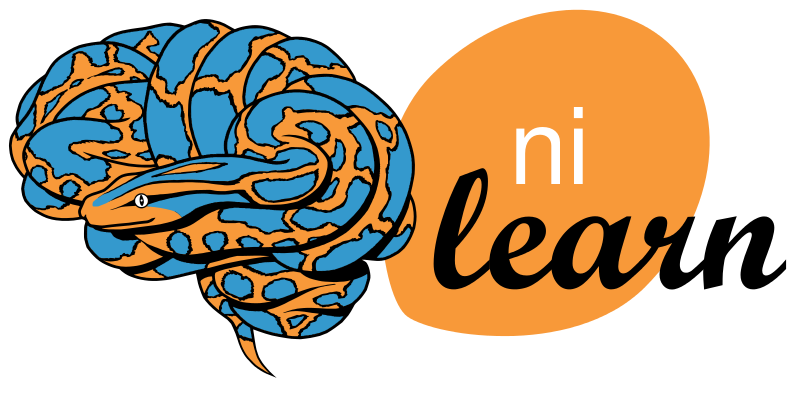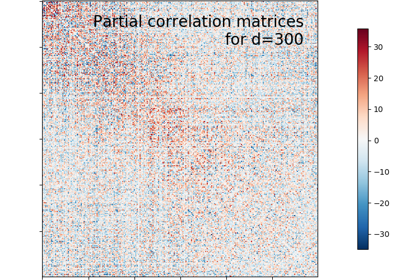Note
This page is a reference documentation. It only explains the function signature, and not how to use it. Please refer to the user guide for the big picture.
8.2.31. nilearn.datasets.fetch_megatrawls_netmats¶
nilearn.datasets.fetch_megatrawls_netmats(dimensionality=100, timeseries='eigen_regression', matrices='partial_correlation', data_dir=None, resume=True, verbose=1)¶Downloads and returns Network Matrices data from MegaTrawls release in HCP.
This data can be used to predict relationships between imaging data and non-imaging behavioural measures such as age, sex, education, etc. The network matrices are estimated from functional connectivity datasets of 461 subjects. Full technical details in references.
Parameters: dimensionality: int, optional
Valid inputs are 25, 50, 100, 200, 300. By default, network matrices estimated using Group ICA brain parcellations of 100 components/dimensions will be returned.
timeseries: str, optional
Valid inputs are ‘multiple_spatial_regression’ or ‘eigen_regression’. By default ‘eigen_regression’, matrices estimated using first principal eigen component timeseries signals extracted from each subject data parcellations will be returned. Otherwise, ‘multiple_spatial_regression’ matrices estimated using spatial regressor based timeseries signals extracted from each subject data parcellations will be returned.
matrices: str, optional
Valid inputs are ‘full_correlation’ or ‘partial_correlation’. By default, partial correlation matrices will be returned otherwise if selected full correlation matrices will be returned.
data_dir: str, default is None, optional
Path of the data directory. Used to force data storage in a specified location.
resume: bool, default is True
This parameter is required if a partially downloaded file is needed to be resumed to download again.
verbose: int, default is 1
This parameter is used to set the verbosity level to print the message to give information about the processing. 0 indicates no information will be given.
Returns: data: Bunch
dictionary-like object, the attributes are :
- ‘dimensions’: int, consists of given input in dimensions.
- ‘timeseries’: str, consists of given input in timeseries method.
- ‘matrices’: str, consists of given type of specific matrices.
- ‘correlation_matrices’: ndarray, consists of correlation matrices based on given type of matrices. Array size will depend on given dimensions (n, n).
- ‘description’: data description
References
- Stephen Smith et al, HCP beta-release of the Functional Connectivity MegaTrawl. April 2015 “HCP500-MegaTrawl” release. https://db.humanconnectome.org/megatrawl/
- Smith, S.M. et al. Nat. Neurosci. 18, 1565-1567 (2015).
- N.Filippini, et al. Distinct patterns of brain activity in young carriers of the APOE-e4 allele. Proc Natl Acad Sci USA (PNAS), 106::7209-7214, 2009.
- S.Smith, et al. Methods for network modelling from high quality rfMRI data. Meeting of the Organization for Human Brain Mapping. 2014
- J.X. O’Reilly et al. Distinct and overlapping functional zones in the cerebellum defined by resting state functional connectivity. Cerebral Cortex, 2009.
Note: See description for terms & conditions on data usage.

